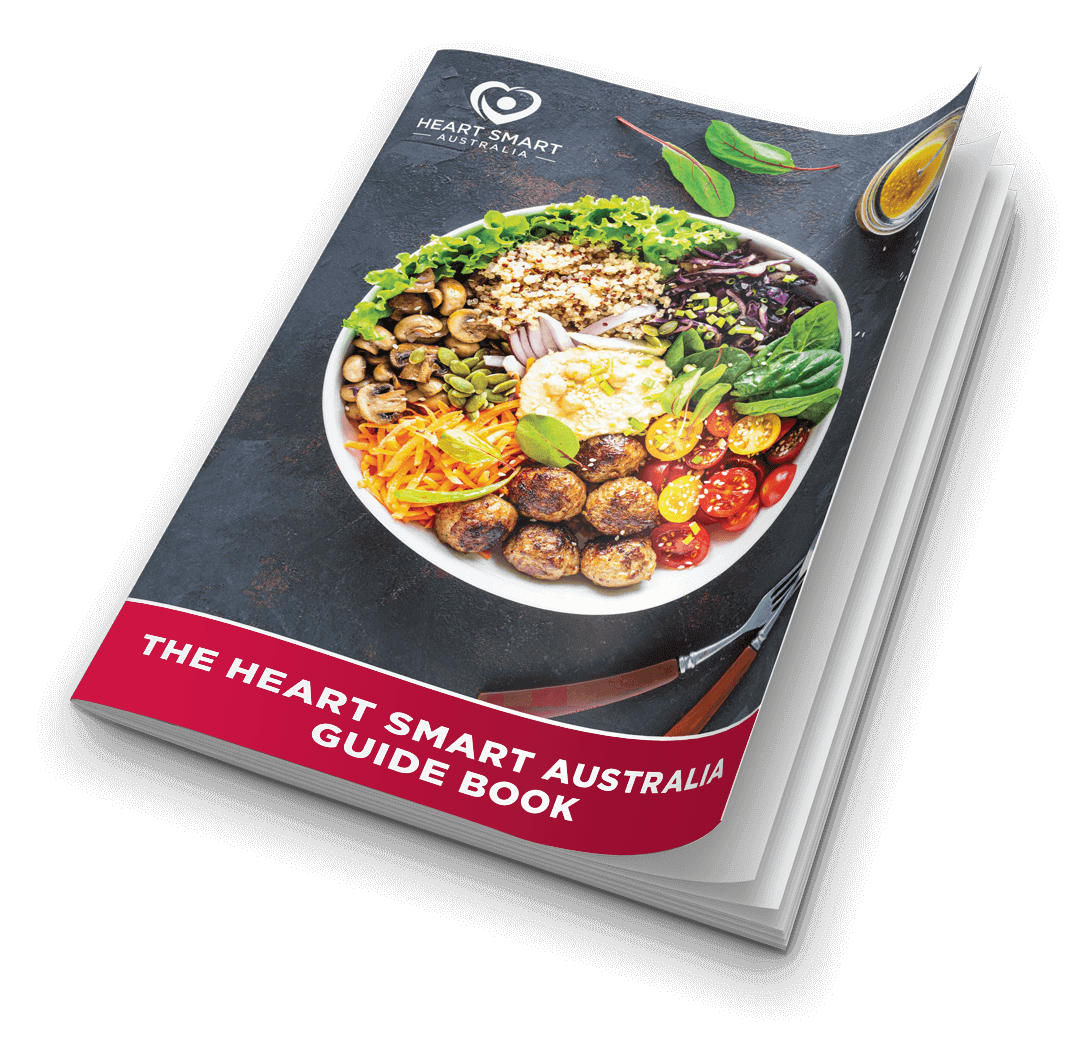Heart Care 101: Our Top Tips for Heart Health
Top tips for Heart and Vascular Care
While we may not realise it, our heart is one of the most important muscles in the body. At the centre of our circulatory system, our heart works around the clock to pump blood and oxygen around the body to our muscles and organs and carries away unwanted carbon dioxide and waste products (1). If it’s not given the proper care it deserves, serious problems can arise, placing us at higher risk of cardiovascular disease, stroke, or even death. Adopting an active lifestyle with regular physical activity and good nutrition are just some examples of ways we can improve our heart care.
In this article we explain the many ways you can take control and improve your heart care including:
1. Physical Activity
Regular physical activity is one of the best ways to improve heart and vascular care. How? Well according to research, regular movement can help to:
If you’re looking to add more physical activity to your routine, it’s important to engage in a movement that you enjoy. This way, you’re more likely to be consistent with it and create healthy habits that are sustainable for the long term. Plus, the more consistent you are with movement, the better it is for improving heart care! Not sure where to start?
Here are some ideas to get you started:
Alternatively, if you struggle to find time in your routine for exercise, then start with small changes in your work day like:
While these may seem like small changes, all movement counts when caring for the heart!
2. Caring for the heart with nutrition
What we eat (and drink) has a huge impact on our heart health. In fact, research has shown that poor diet is one of the leading risk factors for heart disease in Australia, as it impacts risk factors such as blood pressure, cholesterol, weight, and diabetes risk (3).
Here are 4 things you can do to improve heart care:
1. Enjoy a wide variety of nutritious foods
A diet rich in whole grains, fruits, vegetables, lean proteins, and heart-healthy fats will not only help to reduce your risk of heart disease but will ensure you are getting the vitamins and minerals needed for good health. It will also ensure you are getting enough fibre – including soluble fibre – which can help to lower your cholesterol and support gut health and help you maintain a healthy weight (3).
2. Eat more healthy fats, and limit saturated fats for heart and vascular care
Unsaturated fats – including monounsaturated and polyunsaturated – are classified as “healthy fats”, as they promote heart health by decreasing cholesterol levels, and increasing HDL “helpful” cholesterol.
Foods that are a great source of healthy fats include:
- Avocado, nuts, and seeds including walnuts, almonds, cashews, flaxseeds, and linseeds
- Olive, canola, and peanut oils
- Oily fish e.g. salmon, tuna, mackerel, sardines
On the other hand, saturated fat found mainly in processed and fatty meats, full-fat dairy and discretionary foods like cakes, pastries, and sweets have a negative impact on your cholesterol levels and increase your risk of heart disease. Keep these foods to a minimum in your diet to help reduce your risk and improve heart care.
3. Reduce your intake of salty foods
Eating too much salt can elevate your blood pressure, which means that your heart needs to work harder to pump blood around your body. High blood pressure can cause damage to arteries, the heart, kidneys, and other organs, and if left untreated, can lead to heart attacks, stroke, and kidney failure. According to the Heart Foundation, Australians are on average consuming double the recommended amount of salt (3).
To reduce your intake of salt, try these simple tips:
4. Reduce alcohol consumption
Alcohol affects your cardiovascular health in several ways. Firstly, when you drink alcohol, this causes a temporary increase in heart rate and blood pressure. Over time, excess drinking can cause an irregular heartbeat, and weakened heart muscles and can also cause your blood pressure and heart rate to remain elevated. This means that your heart will be less effective in pumping blood, oxygen, and nutrients around your body and to your organs, and places you at a higher risk of heart attack and stroke (4). To improve heart care, reduce your alcohol consumption and opt for no more than 10 standard drinks per week as per the Australian Alcohol Guidelines (5).
3. Quit smoking
Smoking is one of the major causes of cardiovascular disease. This is because the chemicals in cigarettes:
All of these physiological changes increase the risk of atherosclerosis, coronary heart disease, stroke, and experiencing heart attack (6). However, whilst smoking damages our hearts and vessels quickly, the damage can be repaired if you choose to stop. If you’re serious about your heart care, speak to your General Practitioner to get advice on how you can quit smoking today.
Note: most smokers don’t quit on their first attempt. It can take several attempts to be successful. The health benefits are worth it – so keep trying!
4. Prioritise sleep for heart and vascular care
Getting good quality sleep is just as important as physical activity and good nutrition when it comes to caring for the heart. Studies have shown that poor sleep quality and short sleep duration are associated with higher blood pressure, elevated cholesterol, and atherosclerosis (7). Also, habitual short sleep has been shown to increase the risk of cardiovascular events. Unfortunately, the bad news doesn’t stop there! Not catching enough z’s is also associated with poor nutrition, weight gain, diabetes, inflammation, and an increased risk of stroke, heart attack, and death! (7). What’s the takeaway message? Catch more z’s! According to the sleep foundation, healthy adults should aim for 7-9 hours of sleep each day (8).
Here are some simple steps you can take to improve your sleep hygiene to improve heart care:
5. Manage your stress levels for heart care
Whether it’s your job, your finances, or even family issues, there’s no denying we all encounter stress in our life. But how much stress you experience, and how you respond to it can affect your health in more ways than one. How? When we’re feeling stressed, we are more likely to adopt poor health behaviours such as overeating or eating discretionary foods, reducing our physical activity, smoking, or even forgetting to take our medications. Also, stress can have physiological changes too, such as an increase in stress hormones like cortisol, or increased inflammation in the body, which has been linked to high blood pressure, and can increase the risk of heart disease and stroke (9). Managing stress is an important step for heart and vascular care, and your overall health and well-being. Try managing your stress through:
6. Seek professional help for further support
Getting healthier and reducing your risk of heart disease can be made easier with the right support. At Heart Smart Australia, every person is unique. We offer individualised programs for those who are looking to reduce their risk of heart disease which include 1-on-1 sessions with an Accredited Practising Dietitian and Health Coach to help you make small, sustainable lifestyle changes and improve your heart health. If you’re interested to gain insights into the experiences of our valued clients, we encourage you to read Heart Smart Australia reviews.
To learn more about what our programs can offer you, book your free assessment to speak to one of our friendly staff today.
How we reviewed this article:
- Sources
- History
Heart Smart Australia utilises a variety of credible and reliable sources to support and provide valuable insights into the topic being discussed. From academic journals to government reports, each reference has been carefully selected to add depth and richness of our articles.
- (1) NHS Inform | (2020). How your heart works. Nhsinform.scot.
- (2) Johns Hopkins Medicine | (2019). 7 Heart Benefits of Exercise. John Hopkins Medicine .
- (3) Heart Foundation | (2021). Healthy Eating to Protect Your Heart | The Heart Foundation. Heartfoundation-Prod.azurewebsites.net.
- (4) Alcoholic Think Again | (2020, December 17). Alcohol and Cardiovascular Disease. Alcoholthinkagain.com.au.
- (5) National Health and Medical Research Council | 2018). Alcohol. NHMRC.
- (6) Centers for Disease and Prevention | (2014). Smoking and Cardiovascular Disease.
- (7) Sleep plays an important role in heart health | (n.d.). Www.heart.org.
- (8) Suni, E | (2021, March 10). How Much Sleep Do We Really Need? | National Sleep Foundation (A. Singh, Ed.). Sleep Foundation.
- (9) American Heart Association | (2021, June 21). Stress and heart health. American Heart Association.
Our team actively monitors health and wellness advancements, keeping our articles up-to-date with the latest information as it becomes available.










